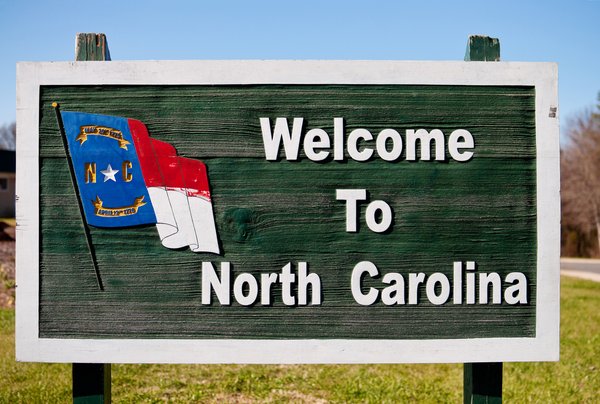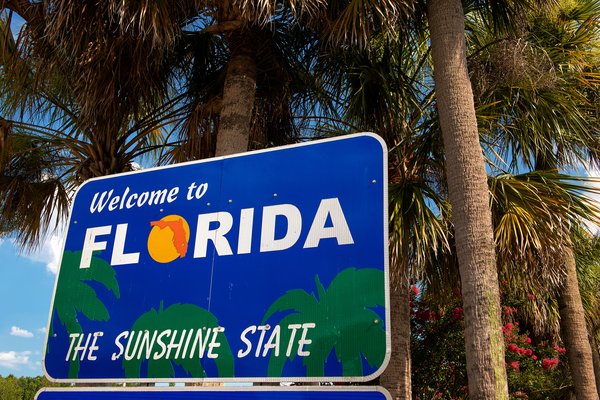People planning for their golden years may be wondering about the safest states for retirement. After all, you worked hard, and you want to be sure you stick around to enjoy it. Although each state has its advantages and disadvantages, several stand out as some of the safest states in the country to spend retirement. If moving to a safer area is part of your retirement plan, read on.

Key safety factors
Key factors where the safest states to retire excel
There are a few areas that are important to senior safety that are worth highlighting before digging into the safest states to retire.
- Access to affordable healthcare: Seniors generally require more doctor visits than people in their 20s. A high number of doctors specializing in geriatrics can make a state much safer to live in than those with less affordable healthcare access. Imagine having a life-threatening condition and not being able to see a doctor due to long wait times or simply not being able to afford it. There's not much greater risk for the elderly than not having a good doctor.
- Motor vehicle deaths and other early deaths: Fatal car accidents can be a serious concern for the elderly. A car crash has a higher chance of killing a driver older than 70 than a middle-aged driver. So, safe roads should be a concern for retirees. And other causes of early death, like firearms, unintentional injuries, or simply poor health, also play a factor in determining the safest states to retire.
- Social isolation: Social isolation can play a role in increasing mental health issues, which could lead to early death. And there's always truth to the saying "safety in numbers." States with strong communities of retirees can help older people live longer, happier lives.
- Fraud: Retirees are the biggest targets for fraud. As a group, retirees have more money and are easier to take advantage of with fraudulent schemes like debt collection and identity theft. If someone steals your money, you're not going to feel safe, and you're not going to have the means to live the retirement you planned.
Safest states to retire
Safest states to retire
The following states, presented in no particular order, are very safe for retirees.
Minnesota
Minnesota ranks highly across the board.
- Few retirees struggle to afford healthcare, and the number of geriatric providers relative to adults who are older than 65 is one of the highest ratios in the country.
- It has safe roads and a lower death rate for the population between 65 and 74 than 90% of the country.
- There's also a low risk of social isolation, although winters can certainly be harsh.
- Fraud in the state is relatively low, with a per capita rate substantially below median levels.
Hawaii
Retiring in Hawaii could be a dream, and if safety is a primary concern, there are few states better suited for retirement.
- Hawaii ranks highly for access to geriatric providers, but healthcare can be expensive. It's also worth noting those needing in-home care may have trouble finding a solution.
- Hawaii has fewer motor vehicle deaths than any state. Firearm deaths are also unlikely. Both factors may play a role in Hawaii's seeing fewer people between the ages of 65 and 74 passing away.
- There is some risk of social isolation in Hawaii. It ranks 14th in the nation. But if you're going to be isolated, a tropical island isn't the worst place.
- Fraud in the state is relatively low, with per capita rates below median levels.
Connecticut
Connecticut could be a great place to retire. It ranks highly for senior safety while only a short drive or train ride away from the attractions of New York City.
- There are a lot of doctors specializing in geriatrics in the state, and most residents have no issues affording healthcare. That said, Connecticut has some of the highest housing costs in the entire country. So, even if more residents can afford healthcare, it doesn't mean it's generally affordable for the rest of the country.
- The roads in Connecticut are generally safe. And if you find yourself driving into New York, they're even safer. Firearm deaths are also low. The only state with fewer early deaths is Hawaii.
- Connecticut ranks in the middle of the pack when it comes to risks for social isolation. It's best to retire there if you have a strong friend group nearby instead of relying on communities.
- Connecticut also has median levels of fraud.
New Hampshire
The scenic views offered by New Hampshire could be just what calls to you in retirement. And you can get them in one of the safest states for retirement.
- The number of geriatric providers in New Hampshire per capita is well above median levels. The state ranks highest in the country in terms of residents being able to afford care. However, it's another state with high housing costs, so take that stat with a grain of salt.
- New Hampshire ranks above average in motor vehicle and firearm deaths per adult age 65+. But it has a lower early death rate than all but seven other states, perhaps due to better access to healthcare.
- There's an extremely low risk of social isolation in New Hampshire. It ranks second in the country with strong communities in the state.
- Fraud in New Hampshire is only slightly better than the median levels.
Colorado
Colorado's mountains can provide tons of retirement activities, and the state is one of the safest for retirees to boot.
- The state ranks highly in both the number of geriatric providers and their affordability.
- Road safety is better than the median, ranking in the top 15 states for motor vehicle deaths. Firearm deaths are higher, but if you're not a hunter, that rate likely goes down considerably.
- There are a lot of senior communities in the state, ensuring low levels of social isolation for seniors.
- There are considerably greater-than-average levels of fraud in the state, so be sure to protect yourself if you plan to retire to the mountains.
Related investing topics
Where to retire
Should you consider these states for retirement?
The United States is a big country with a lot of great places to spend your golden years. The above five states are some of the safest for people older than 65, given their strong and affordable healthcare systems, safe drivers, welcoming communities, and moderate levels of fraud.
That said, things can be a lot different based on localities within a state. There might be great parts of some states that rank poorly overall on those metrics. Likewise, there might be not-so-great places to live in the states mentioned in this article. Be sure to do your research on the specific town you're looking to move to in retirement.
Relocating in retirement can be a great way to explore new things now that you don't have a job. Just be sure your retirement plans include moving to a safe area so you can spend as much time as you can enjoying them.
Retirement location FAQs
What state is the safest for retirement?
Based on low mortality rates and access to healthcare, Hawaii is one of the safest states for retirement. But the answer could change depending on what factors are important to your own personal safety. To say any one state is safest is difficult. What one person considers a key to safety may be inconsequential to someone else.
Which states are poor retirement options?
While there are likely good places to retire in just about any state, some states aren't as great for seniors as others. Georgia, for example, has the highest rate of fraud of any state in the union. On top of that, it sees a significant number of motor vehicle deaths among citizens age 65+ and a mortality rate among 65 to 74-year-olds that ranks 42nd among the 50 states. Almost 5% of seniors have trouble affording healthcare in the state, worse than all but six states.
Which state is No. 1 for retirement?
The No. 1 state for retirement based on The Motley Fool's study and analysis is Vermont. The Green Mountain State is a relatively safe place to retire with very low mortality rates for people between the ages of 65 and 74. That said, road safety is only middle-of-the-pack, and healthcare availability and affordability is above average but not top-tier.
Which states don't tax pensions and Social Security?
Alaska, Florida, Nevada, South Dakota, Tennessee, Texas, Washington, and Wyoming have no state income tax, and don't tax pensions and Social Security. Alabama, Hawaii, Illinois, Iowa, Mississippi, New Hampshire, and Pennsylvania don't tax pensions or Social Security. Arizona, Arkansas, California, Delaware, Georgia, Idaho, Indiana, Kentucky, Louisiana, Maine, Maryland, Massachusetts, Michigan, New Jersey, New York, North Carolina, North Dakota, Ohio, Oklahoma, South Carolina, Virginia, and Wisconsin don't tax Social Security.














